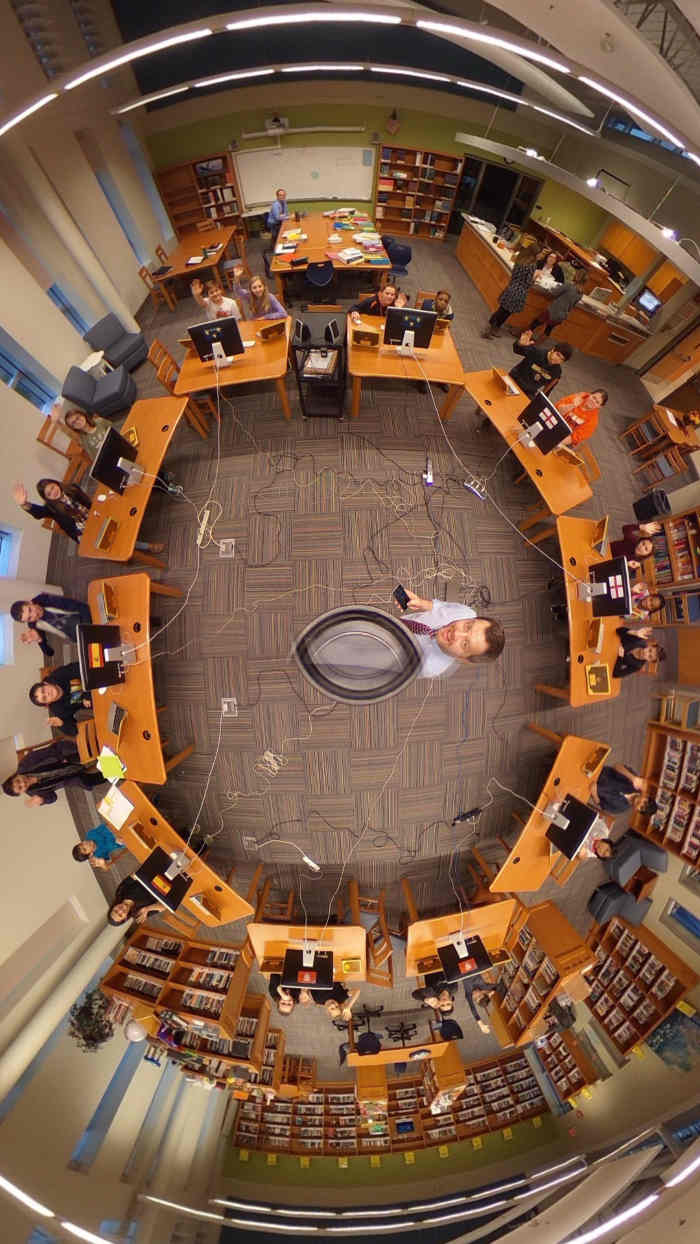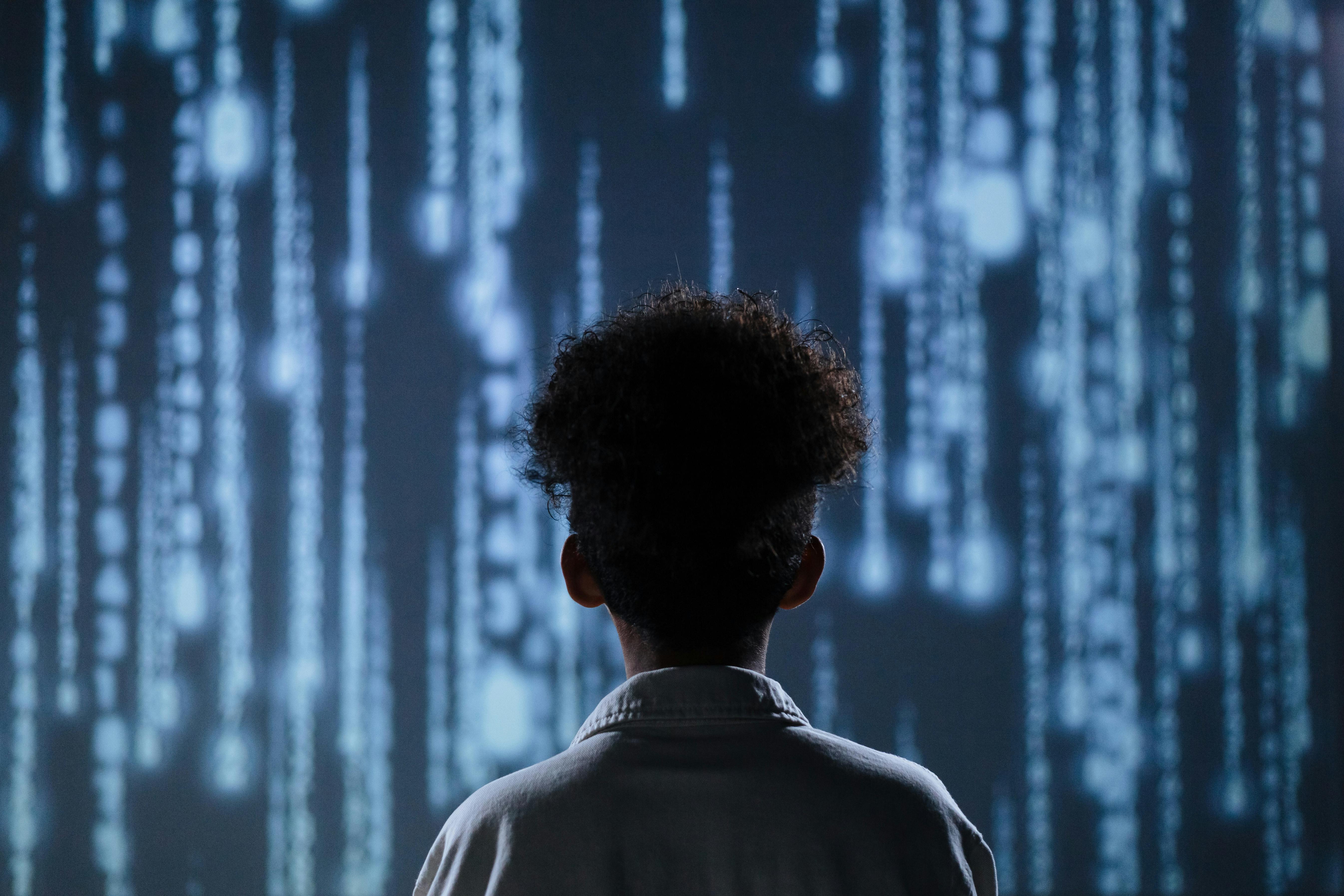Game-Based Learning Yields Empathetic Understanding #edtech #edgaming @sid_meier

I have been teaching Social Studies for 18 years and have found a natural place for me in my classroom is the “sage on the stage” when really for my students I think it is best for me to be more often a “guide on the side.” With this in mind, I have been trying to take myself away from the front of the classroom and shifting to supporting student learning. This decision is driven by my understanding of both educational pedagogy and a paradigm shift in knowledge acquisition in our digital age.
Tangible, applicable learning experiences are necessary to support sustainable skills and knowledge for our students. Educating students in an increasingly Google-able world, means shifting our fact-recall focus to experiential learning. Experiential learning occurs when learning experiences are designed to foster context-based empathy. Empathy is defined as the action of understanding, being aware of, being sensitive to, and vicariously experiencing the feelings, thoughts, and experience of another. Teaching empathy is rapidly being recognized as paramount in preparing students for the world that awaits them. Leveraging the engaging structure of simulations and games to achieve instructional goals can prove a powerful medium in experiential learning.
[Using Geo Skills and Experiences in Exploring Empathy #edtech]
Simulations have always had a positive impact in my classroom. For years I have led students on historical-context-based adventures to colonize the New World, travel the Oregon Trail, and fight in the Civil War. The teachable moments in these experiences continue to be both widespread and poignant. Together, my students and I discuss multiple perspective around the same events, basing our discussions around their personal experiences during game play.
The interesting thing I have found about the best games are that they are not designed for education. Non-education games have proven to have the most impact with my students. Each fall we form small teams (2-3 people) to play Sid Meier’s Civilization IV: Colonization (https://goo.gl/DPv2Nc) against each other (see image: https://goo.gl/4JeSrV).
Our ten linked computers allow for a competitive, history-rich experience around the colonizing of the new world. From this one experience, I will lead student discussions around imports and exports (mercantilism), taxation without representation, indentured servants, slavery, and the difficulties in declaring independence. My students base their comments on their experience as they are similar or different to the historical record.
In a Google Classroom question posed to my students about taxation and independence, I received many excellent responses, one student stated:
Tech & Learning Newsletter
Tools and ideas to transform education. Sign up below.
“A country would want to declare independence because they want they might not like the king taxing them and would like to make their own laws and rules, and do their own stuff, kind of like an edgy teenager. Most of the kings that owned the colonies were greedy and taxed a lot, and some of them didn’t even let the colonists vote for the laws. They also had to still honor the monarchy, even if they hated the monarchs. The king was also the only way for the colonists to get money, causing an unwanted bond between the colony and the monarchs. Eventually the colonists snapped. Independence was difficult to achieve because the kings and queens wanted to keep taxing the people so much that they would do anything to keep them part of their colony, even start war. They would leech off of the colonists until they dropped, and feel no sympathy. Another reason that independence was hard to achieve was that not all people were for independence. This means that some people from even the town trying to achieve independence would be fighting for the kings and queens.”
Other students would echo these sentiments and wrote about colonies not wanting to be under control by the king because of the extra taxes they have to pay. One student stated, “One example is when the King wanted to raise our taxes from 19% to 24% which was ridiculous, however, if we didn’t we wouldn’t be able to trade tobacco.” Further, students addressed the difficulties of becoming independent by expressing that not all colonists had a positive opinion toward independence because they were still loyal to their country and king and that to persuade them would take printing presses and newspapers, which were difficult to build.
These responses were all prior to our any class content on the British Colonies and illustrate an empathic understanding of the colonial experience. When we discuss taxation without representation students will understand the dissatisfaction of the British colonists at a whole new level.
The increased motivation and engagement of my students toward the content that I teach has led me to search for more game-based experiences. It has become clear to me that game-based learning can increase student empathy toward historical content. Through this emotional, empathetic connection my students appreciate the experience of historical peoples which breathes life into our shared past.
Further readings from my blog:
Empathy https://goo.gl/mN6TDX
Civ IV setup https://goo.gl/2FtfGx
cross posted at micahshippee.com
Micah Shippee, PhD is an out-of-the-box-doer, a social studies teacher, and a technology trainer. He works to bridge the gap between research and practice in the educational sector. Micah explores ways to improve motivation in the classroom and seeks to leverage emergent technology to achieve educational goals. As an innovative "ideas" person, Micah likes to think, and act, outside the box. Micah is motivated and energetic, taking a creative approach towards achieving goals. As an Educational Consultant, and Keynote Speaker, he focuses on the adoption of emergent technology through the development of an innovative learning culture. Micah believe that innovativeness is the pedagogy of the future.
